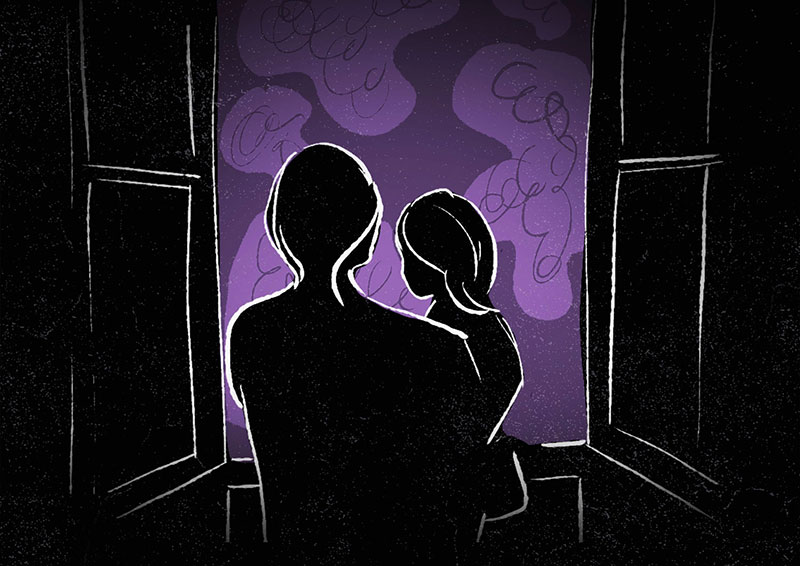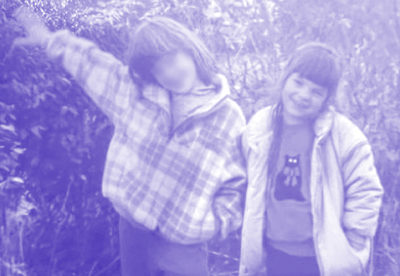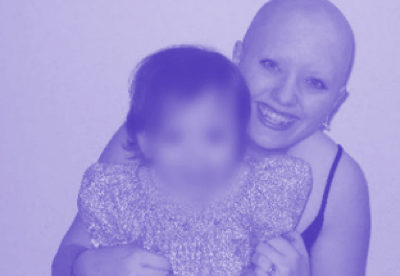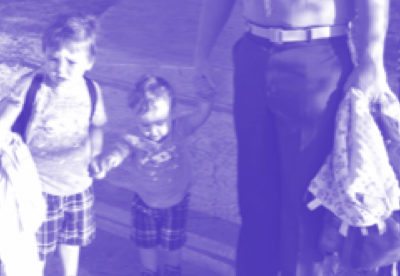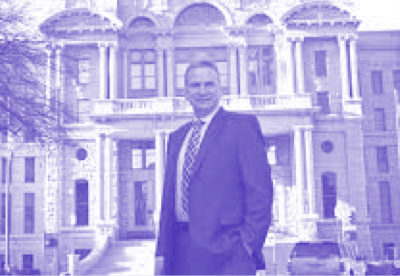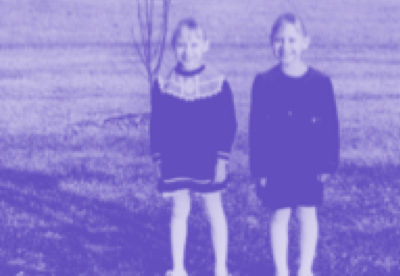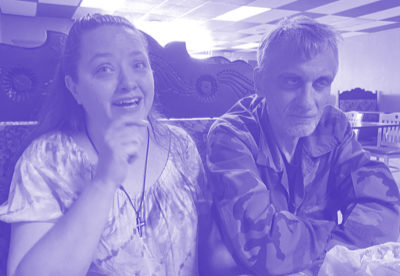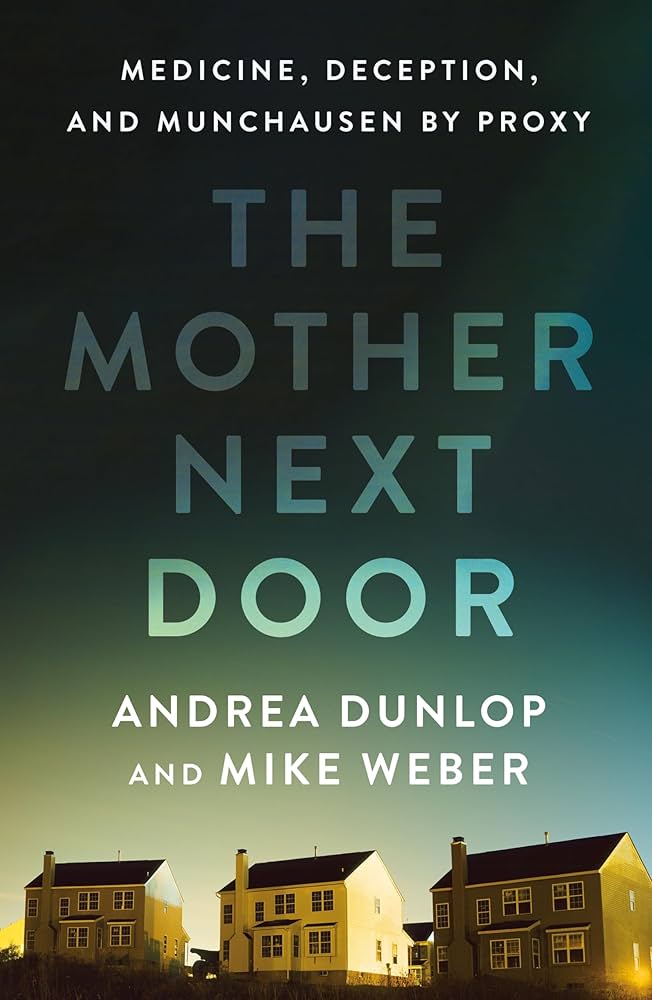SEASON 03 | EPISODE 10
The Verdict Part 2
Andrea checks in with lawyer and trial consultant Jonathan Leach hours after the Kowalski verdict comes down. They talk about the judge’s decision to disallow testimony from the defense on medical child abuse, what happened with this jury, and the chances for a possible appeal for JHAC.
With the medical community reeling from this news, Jonathan and Andrea unpack the dire consequences of the verdict and wonder — what now?
Host Andrea Dunlop:
https://www.andreadunlop.net
For behind-the-scenes photos:
https://www.instagram.com/andreadunlop/
Support the show and get exclusive bonus content:
https://patreon.com/NobodyShouldBelieveMe
For information and resources:
https://www.munchausensupport.com
The American Professional Society on the Abuse of Children’s MBP Practice Guidelines can be downloaded here.
More about Dr. Marc Feldman:
https://munchausen.com
[00:00:00] Hello, it’s Andrea Dunlop. This is Nobody Should Believe Me, and this is the second part of our verdict reaction to the Kowalski v. Johns Hopkins all children’s trial. And today we have with us Returning guest, friend of the pod, uh, Jonathan Leach. He is a lawyer and trial consultant and we heard from him in episode seven, which was our big trial recap, and now he is here again to help us unpack this verdict and talk about what might be coming next.
Hi, Jonathan. Hi, good afternoon. Nice to be with you. Nice to be with you as well. And so, we got the news a couple of hours ago that the jury in the Kowalski v. Johns Hopkins trial had reached a verdict and they found for the plaintiffs on all [00:01:00] counts and awarded the Kowalskis somewhere north of 200 million dollars.
So we are hoping you can help us make sense of how that happened. So, the first thing that I wanted to ask you about is how this case ended up in front of a jury to begin with, because it’s my understanding that a previous judge had ruled that the plaintiff did not have sufficient grounds to take it to a jury trial.
So, what goes into that decision of whether a case ends up before a jury or not? Well, it’s, it’s the plaintiff’s call. I mean, the plaintiff has the right to, to request a jury trial, and… Apparently the plaintiff’s attorney in this case was able to revisit that on a subsequent motion with this judge and persuade him that a jury was appropriate.
And what is the impact of having a jury in a trial like this, especially one that is so incredibly complicated [00:02:00] and has all of these medical elements and just things that, you know, your average person on the street might not be able to wrap their head around. Well, of course, the risk from the defense standpoint is that those are the very people who will be asked to weigh the evidence and it, it may be very difficult.
for lay people to get their hands around all of it. Certainly there’s a risk when you have a judge only because it’s, it’s fair to say that in some ways a judge is a jury of one. And, you know, depending on the quality and the expertise and the reasonableness of the judge, that may or may not be a good thing.
But, I think in general, the plaintiff, uh, prefers to have a jury. Certainly, this is a very emotional case, and I think the jury that we, we saw here, uh, responded in a very emotional way to what they heard. Yeah, I agree with you. And of [00:03:00] course, it’s very hard to watch this. without whatever lens you bring to it, right?
So, obviously, I’m watching this in a different way than other people would be. And also, if you’re not a member of the jury, you have access to all kinds of information that you don’t because the judge is making decisions on what the jury gets to see and what they don’t. And we’ll kind of talk about some of those decisions.
But I just am shocked at how a jury could see so many doctors for the defense side testifying about all of the problems with this medical care and seeing these emails from Beata that were drafts of the blog post in Maya’s voice that were very disturbing and I certainly saw that have an effect on public opinion as I was sort of watching how people were talking about this case online and it just It’s baffling to me how someone could see all of that and really just [00:04:00] default to that emotional story.
Is that surprising to you as well or is this kind of naivete on my part to be surprised by that? Well, two things. I think the point you just made is very important. That is that there are so many things they did not see. There is a story behind this story that they were not privy to that maybe the rest of us in our privileged position of being on the sidelines have had access to.
Second thing is, my take on the verdict that we have seen today is that this particular jury appears to have become emotionally aroused or so inflamed at the very beginning, we’ll say day one of trial, with the opening statements. that in some ways they were never able to come back down off of that, um, sort of [00:05:00] psychological red zone.
And when that happens, and I have seen that happen, it’s, it’s virtually impossible for that kind of juror to take in to onboard new information or contrary information. Typically what happens is a jury like that will, will rationalize or will dismiss or will come up with some alternative narrative, uh, that allows them to hold on to their anchor position, which is the one they, they developed on day one of trial.
So I, that’s my read that they just, they got mad in, in week one and they never stopped being mad. Yeah, I mean, I agree with you other than what questions the jury asked of the witnesses which those would you know that was sort of our only insight into what the jury was thinking and They did seem really engaged, which is why I think I was so surprised I mean, I’m surprised by this verdict not in that they came back with anything [00:06:00] favoring the Kowalskis I was thinking it was going to be sort of a much more nuanced verdict and You know, I don’t think that given how sad the story of this family is, I don’t feel like a jury is going to, you know, have them walk away with nothing, but I didn’t think it was going to be all counts, hundreds of millions of dollars.
And I mean, the minute they started reading from the false imprisonment claim, I was, I was just thought, you know, it was like this, this ship is, is sunk. And I wonder how big of an impact do you think the judges. of not letting the defense talk about medical child abuse, essentially. I mean, how big of an effect do you think that had?
I think it’s huge. I think it takes away that alternative explanation. It essentially guts the the defense, which, you know, at the end of the, at the end of the plaintiff’s opening statement, jurors are [00:07:00] sitting there and, and essentially they’re asking themselves, you know, if we are not here for the reasons that Mr.
Anderson just, just said. then why are we here? And it’s the role of the defense to provide that alternative explanation. And when you take away medical child abuse, there it goes. There goes the alternative. The other thing I would say, another observation I had today, Andrea, is that just the logistics of the verdict, that it, it really, considering how many counts there were, how many questions there were for the jury to answer, they came back very quickly.
So, so this goes to your point about there not really seeming to be much debate within the jury room on behalf of the defense. You know, two days is not a lot of time to reach a verdict this complicated. Yeah, I agree with you and they immediately came back with questions asking about the calculations that they’d offered for damages and that certainly made me nervous because I was like, [00:08:00] oh goodness, are they really already talking about damages?
But I agree with you that. without the lens of medical child abuse, it’s just sort of could very easily look like doctors talking against doctors, right? I mean, then you have like, oh, well, these five physicians seem to think it was fine. And then these other ones don’t. And unless you have that lens. And I mean, the fact that Sally Smith was.
called to testify, yes, but she didn’t ever get to share her report. I mean, that just seems. Yeah. Well, a report, by the way, that, that we have heard described as one of the most thorough and comprehensive medical child abuse reports there has been. Yeah. And yet the jury didn’t get to, to share in it or to see it.
And, and none of us get to see it either. I mean, I, you know, yeah, we, we, we know someone who, who has seen it. Um, and, and they said it was. Exactly as you, as you described, um, [00:09:00] but, you know, that’s not been released to the public. And I think that that’s really, you’re right, it just completely, it leaves the defense without a comprehensive narrative because if you don’t understand that their actions were to protect Maya, then all they look like is being cruel to Beata.
Right. And this is the kind of decision I think that, um, you know, in, in theory, I think there’s a possibility that as a drawer or two or three learn about medical child abuse, they may well say, gosh, You know, in hindsight, I wish I had known that. I wish I had known the report. I wish I had known how extensive this, um, behavior is out there.
I would have, I would have, um, certainly, um, wanted to talk about it more in the jury room, but, but I didn’t know. [00:10:00] Right. It doesn’t even quite seem fair to them. It’s I, I find myself wanting to be angry with the jury, but then I know that they just didn’t have that context. And I, I feel like there was so much information coming at them.
And I wonder kind of what you think about the effects of the plaintiff and. the defense, their attorneys were very different tonally. You have Gregory Anderson, who really is a sort of fire and brimstone kind of like, you know, he used very, you know, inflammatory language. He had these kind of like florid descriptions of Kathy Beatty wanting to take Maya for her own and I mean just these things that to me listening sound so outlandish, but that seemed to be part of his strategy, right?
That he’s painting this like really big sort of dramatic picture of a conspiracy of people out to get This hard working, all American family, you know, he used that language in his closing, like, [00:11:00] these are patriots, these are, you know, they showed Jack Kowalski in his firefighter uniform. And then, on the other side, you have the defense, who were a lot more nuanced.
Ethan Shapiro, in particular, who did the closing, is… just a much more soft spoken kind of delivery. And I wonder, like, do you think that, to your point, because you used that word emotionally inflamed, I mean, that appears to have been effective. Like, I couldn’t understand watching Anderson, how people weren’t put off by him, because I was very put off by him.
But, I mean, I guess, That’s just a matter of who’s sitting in the jury box. Yes, that’s right. And it is so difficult in this kind of emotionally charged case to thread that needle on the defense side of being thoughtful. But outraged. That is, let me help you drawers reason through and connect the dots of the facts here.
And by the way, [00:12:00] to convey a sense of outrage that these legally obligated medical professionals who are obligated to report are being attacked in this way. It’s outrageous that they’re being attacked, but I don’t, I, the defense attorney here, I don’t want to go down in the, in the dirt, so to speak. I don’t want to engage in the emotional upheaval.
I want to calm things down to help you navigate all of this. It’s very difficult. I, you know, heard some commentary where people were like, he should have pointed out all of Maya Kowalski’s inconsistencies. And I actually didn’t agree with that because I think it’s like, well, at the end of the day, you’re a grown man talking to, you know, a traumatized teenage girl.
How well is that ever going to play? Um, so I do, I think they had really their work cut out for them. And then without, You know, being able to talk about medical child abuse and what a significant threat that was to her. Because, I mean, I will tell you, [00:13:00] Jonathan, after watching this trial, I’m really convinced that the interventions of these doctors probably saved her life.
And it’s so upsetting to see that that element was essentially barred from the jury. I think you’re right. And it goes to one of the, the difficulties of the case, which is Had it not been for these interventions, where would Maya be? What would her state be in? And then of course the, the, the terrible challenge there is, and then you’re putting Beata on trial, you know, deceased mother.
You are either explicitly or implicitly attacking mom. Yeah. Who of course is another victim in the, in the plaintiff characterization of events. So it’s a very hard thing to do. Right. Now, in terms of possible next steps for Johns Hopkins, I mean, it seems to me as I was watching this, you know, I would [00:14:00] guess that there are many situations in which a hospital would settle out of court, right, for you, just to save themselves the cost of doing, I mean, I can’t even imagine the legal expenses of this whole thing.
So it seems to me significant, the Johns Hopkins. You know, went to trial to begin with. What are, I can’t imagine they’re pleased with this verdict. So what, what are their possible next steps? I mean, is this something where they can appeal? Like, what does that look like? They can certainly appeal, and I would think they would.
I would think that… You know, we’re waiting on the, on the punitive damages piece of this, but if, for example, the punitive damages are so high that they bear no reasonable relationship, I think would be the magic. formula that an appeals court would apply. If there’s no clear proportionality between the punitives and the compensatory damage word that we just heard, you know, [00:15:00] that, that often is, is something that an appeals court would be very skeptical about.
It doesn’t mean that the verdict goes away, but it could certainly mean that on appeal, the damages are limited in some fashion. So, I mean, what about just Is there grounds to just have the verdict overturned, or is that not something that could conceivably happen? The, the touchstone for that is some sort of misbehavior or unprofessional behavior by the judge.
That is, you would need to unappeal to go to the appeals court and say, Either the judge’s own conduct was in some way outrageous and prejudicial, or given these various points of law and the decision points that arose throughout the trial, this judge just clearly got it wrong on the basis of prior rulings on case law, on precedent, and unless you can point to some sort [00:16:00] of clear cut error or misconduct on the part of the judge, your chances on appeal are not good.
Oof. Okay. Um, I was hoping you would have a different answer for us on there. I mean But you can see, and you can, you can understand what it is. I mean, we’ve gone to the trouble of enlisting these folks from all walks of life, and we’ve asked them to give up what, nine weeks of their time, and then in effect we’re saying, but you got it all wrong, folks.
I mean, there’s just, there’s not going to be any appetite to do that unless something that happened on behalf of the judge steered them wrong. I mean, what about this piece about the medical child abuse? Because it seems to me that if the defense had really been able to lay that out and if we had been able to see Dr.
Sally Smith’s report and if they had been able to talk about other cases where, you know, this This, this case I’ve talked about throughout [00:17:00] the season, this case has such a strong parallel to the Olivia Gantt case, which is that case in Colorado where the hospital didn’t report and the little girl died.
And you know, that conversation about hospice, if you have that to look at next to it, I mean, I feel like this is just a massive piece of the puzzle that was left out. So I do wonder if that, I mean, and I, yeah. I agree. Uh, yeah. That, that is, that is the most. viable argument for appeal at this point. Because as I said earlier, you, you, this judge has effectively deprived jurors of, of the all important alternative explanation for why this happened.
So, given this verdict stands, I mean, what kind of precedent does this set legally? Well, you put yourself in the… In the shoes of a medical professional, knowing that you have an ethical and legal obligation to report child abuse when you suspect it. You don’t have to [00:18:00] prove it, but you have to report it when you suspect it.
Now what do you do in light of this decision? On the one hand, you’re subject to felony punishment if you don’t report. On the other hand, presumably, the powers that be, your supervisors, your colleagues in the hospital, are telling you, don’t you dare do it because you’re, you’re buying a whole world of trouble if you do.
So it’s, it’s genuinely, it’s a no win for, uh, mandatory reporters in a hospital setting. Yeah, I mean, I don’t know how we ask people to put themselves in this position because even if their individual providers are not liable, I mean, I think about Dr. Sally Smith, even, you know, some of these other doctors that took the stand.
I mean, I think in particular, Dr. Sally Smith, because she’s been made such a central villain, but I mean, their reputations They’ve been [00:19:00] harassed. I mean, it’s, it’s, it’s devastating. And that shouldn’t be, that shouldn’t be the punishment for trying to protect kids. It just shouldn’t. It’s so wrong. I mean, it’s just so wrong.
To the extent that there is some kind of a silver lining, I hope that one thing this does or one effect that this verdict has is to lay out for all parties involved in medical child abuse, that it is essential to have A stable of qualified experts. on call, so to speak, to come in and to weigh in for the benefit of the court, whether the claim of medical child abuse is justifiable, whether, whether there appears to be in the professional opinion of the expert, if MCA is happening, because you and I talked about this the last time we visited, which, which is this, to [00:20:00] me, critical lag.
In the amount of time it took for a professional to be enlisted to make the call and the effect of that very unfortunate lapse of time was that my stay in the hospital began to look more and more like. False imprisonment. And as I, as I said earlier, it just seems to me it’s, it’s this tragic byproduct of the court in that, in the early days, not being able to find someone to come in and advise the court about what was happening.
You mean with regards to the actual CRPS diagnosis, not with regards to whether child abuse was happening, because of course they did have Dr. Sally Smith in that regard. That’s right. But, right. So, but the, the, the issue early on was. What is going on here? And we want the judge in that case sort of begging someone with an MD.
Tell me what’s happening here. [00:21:00] Someone, by the way, who is not in any way affiliated with any of the parties. Which was, I think, Sally Smith’s issue. To the extent it sort of disqualifies her, that was it. It’s like, okay, I’ve heard from Smith. Let me hear from someone else. And I don’t know who that someone else would be, but I think the result was there was a kind of hemming and hawing or at least a wait and see approach that was taken that in hindsight now, now that we’re in a courtroom is characterized as imprisonment by the hospital.
And it’s tragic. It’s tragic. It is. I mean, and you know, we talked about yes, the difficulty of getting an outside expert to come in and be a tiebreaker. I can’t imagine that this is going to make them more willing to come. It’s like, hey, do you want to come be the tiebreaker in a possible medical child abuse case and, uh, you know, suffer the consequences?
I mean, it really, it’s hard to digest. There are other cases, [00:22:00] and Andrea, I know what, you know what they are, but in other cases where This verdict happens, hypothetically, and there is another child at home, and you immediately fear for the consequences for that other child through… strange circumstances that we saw play out in this case.
That’s not true here, but, you know, this will happen again, and there will be another child at home who is, I think, through the eyes of the folks who are familiar with this condition. is in grave danger. As we leave the courtroom, we’re thinking about the child left at home. Yeah. I mean, and I think, you know, to me, there’s no question that this court decision is going to result in children losing their lives.
I’m afraid you’re right. Because I, I just couldn’t imagine that [00:23:00] any human being who is working in pediatrics is not going to like, well, should I report this parent? Or maybe just, not take them on as a patient. And then they’re going to go and they’re going to seek out these doctors who don’t believe that medical child abuse exists, which I believe we heard from a few of them in this case.
And, you know, the, the argument they’re making is that Beata should have been left to do what Beata thought was best. And she was talking about putting her in hospice. Why wouldn’t we believe her that that’s what she was going to do?
And we’ve seen other cases where it’s at that point that mom orders up the casket and mom begins to make the funeral arrangements. Yep, the Dunedin attack case in Texas, and fortunately that was one where they intervened and that was another one that Mike Weber was involved in and, and they were able to save that child, but yeah.
Right. Tragically, I think the chances of seeing that happen again [00:24:00] with an acquittal of mom
All right. Well, I don’t, it’s hard to know where to end on this one. This is a, this is a tough day for everybody. Um, I’m thinking out loud with you on this, but if there is some way for people who are concerned about this to put that concern into action by equipping courts with the sort of on call experts that they so desperately need, it’s Definitely worth thinking about and doing something about.
Yeah. Well, and I think even just… Jonathan, like, the public awareness piece, if those six jurors came in knowing that medical child abuse was real, I mean, because those of us who, it’s kind of like once you’ve seen a case, you can’t unsee it, right? It’s like, they all look so similar. The patterns [00:25:00] are so strong.
Right. So, if you were, if you had that knowledge going in, if you’d even sort of, you know, had one other case that you were pretty familiar with and you sat in that courtroom, even without hearing medical child abuse, you heard, they went to three dozen doctors before they got this diagnosis. She reported this diagnosis to a doctor a week before she got the diagnosis.
You know, she was talking about hospice care, she was pushing for more medication, like that so clearly fits into this pattern that if that public awareness were higher, I hope that it would make its way Two juries, two judges. As a culture, I take it, we’re still in denial. I mean, we’re still so strongly biased in favor of, you know, all moms want the best for their children at all times.
And that appears to be where we still are and may be for a while. Yeah. I mean, I think so too. And I, I think, um, yeah, even if they had had [00:26:00] someone in there to explain medical child abuse, like I have to say, you know, jury might not have accepted that and just thought like, this sounds too outlandish to be real.
And we heard about the administrative team at the hospital and the, and the risk management folks. And, and I, you know, as you look around the country and think about people in those positions throughout the United States. What are they thinking? What are their next steps in reaction to this? Can you actually explain that piece to us?
Because that was sort of a last minute curveball and it was so complicated that I, I understood that there was something and this was, I believe, after like years after the case with Maya where there was something about the Heart Institute of Johns Hopkins and they weren’t in compliance for a while or something like that.
I mean… Generally the result of this was… management, the folks who have to make these decisions and who have to find insurance coverage [00:27:00] for their employees, for their staff, um, are going to be understandably spring loaded to get children like Maya out of the hospital. There must not be any… Misperception that we are holding a child against anyone’s will, and I don’t care, this is all hypothetical, but I don’t, I as the risk management person may be now thinking I, I don’t care how substantial and persuasive the report of the medical child abuse pediatrician was, get this child out of my facility.
Yeah. Yeah. I mean, I, I can’t, I can’t disagree because of course, like, then dragging a hospital through this and all these other people through this, that affects other children too. So I mean, a hospital is in large part a community institution, so they have to care about being able to take care of all the kids in that community.
So I, I have to agree with you. Um, I [00:28:00] think about how this potentially affects parents with legitimately medically complex children because I fear that if someone, because of course there are situations, we always, you know, stress this on the show, there are situations where children are genuinely medically complex and they have something that’s very difficult to get to the bottom of.
And sometimes parents are insistent and they do get frustrated and they do get to the end of their rope and that’s not necessarily indicative of medical child abuse. But If someone starts giving off those vibes, I worry that those children will not actually get the help they need because if anyone thinks they’re getting anywhere near one of these situations, they won’t want anything to do with it.
I mean, do you think that that is possible? Yeah, you know, years ago I had a experience with a young person who, as it turns out, was suffering from borderline personality disorder. And of course I was unfamiliar with it, but I think what I learned in the course of this sort of nightmarish experience was [00:29:00] that depending on the treating counselor, the psychiatrist, many times the borderline personality patient is so difficult and so challenging that what ends up happening is the, the counselors will find means or pretext to refer that patient to someone else.
In other words, it becomes a, you know, past the problem situation. I think what this verdict does, or potentially will do, is to create that sort of momentum among pediatricians. I suspect, I as a pediatrician may suspect that what I’m saying is Munchausen or child abuse. Therefore, let me quickly refer this family to someone else.
Let me get this problem out of my practice and see, you know, I just want to be rid of this patient. Not, it wouldn’t happen explicitly, but, you know, let, let me find ways quickly to move this patient on down the road. Right. Which ironically is, you know, is one of the features of medical child abuse is doctor shopping and [00:30:00] it almost may be that the doctors themselves will be tempted to say, please go see someone else.
Yeah, I mean, I can absolutely imagine that happening and that’s, that’s really sad for those folks that, I mean, I think we always make the point that like knowledge about medical child abuse and doctors like Sally Smith and other child abuse pediatricians who are knowledgeable about it also help protect families from being caught up in a big investigation that isn’t warranted, right?
It’s their knowledge that helps say this is what it is and this is what it isn’t. Right. So I fear the families that have legitimately sick children will also suffer from this. That’s right. That’s right. Well, Jonathan, I really appreciate you being here with us today and just helping everyone make sense of this confusing series of events.
I hope that the high profile nature of this case will also bring people to question it because I [00:31:00] have seen, I think the people who’ve been the loudest about this case are the sort of pro plaintiff side, the pro Kowalski side. But I know there are a lot of other people who are looking at the story of how this mom was treating her child and the medication that she was giving her and just thinking, what?
Like, what is this? This doesn’t seem right. So I’m really hoping that at least if it brings the conversation to the surface, that that could somewhere along the line. have some positive effects. It’s certainly, today is a hard day, but it’s made me feel really even stronger about the work that we’re doing here and the work that we do on this show.
The work that you’re doing, the work we do on the committee, I think it makes it more vital than ever. And, you know, we regroup and live to fight another day. I agree with all of that. I think there is a I don’t want to say silent majority, but maybe a growing, a growing minority of folks who are [00:32:00] certainly aware of this, who are alert to this kind of behavior, who, you know, express themselves in chat rooms and in YouTube comments, who are clearly, clearly skeptical.
of claims like the Kowalskis. And to the extent that, you know, that opens people’s minds to alternative explanations of what’s going on, I think that’s, that is encouraging. Well, thank you so much for being here with us today, Jonathan. Appreciate it. Thank you so much. Thank you for the work you’re doing.
Keep it up.
In the next episode, we’re going to talk about the girl who is at the center of this whole story, Maya Kowalski. We will look at her testimony from the trial that just wrapped up and talk about What this all means for her, we’re going to talk to Dr. Mary Sanders, who is a child and adolescent psychiatry professor, and to Jordan Hope, who is a survivor.
[00:33:00] That’s next time on Nobody Should Believe Me. Nobody Should Believe Me is a production of Larj Media. Our senior producer is Tina Nole, and our editor is Corine Kuehlthau.

